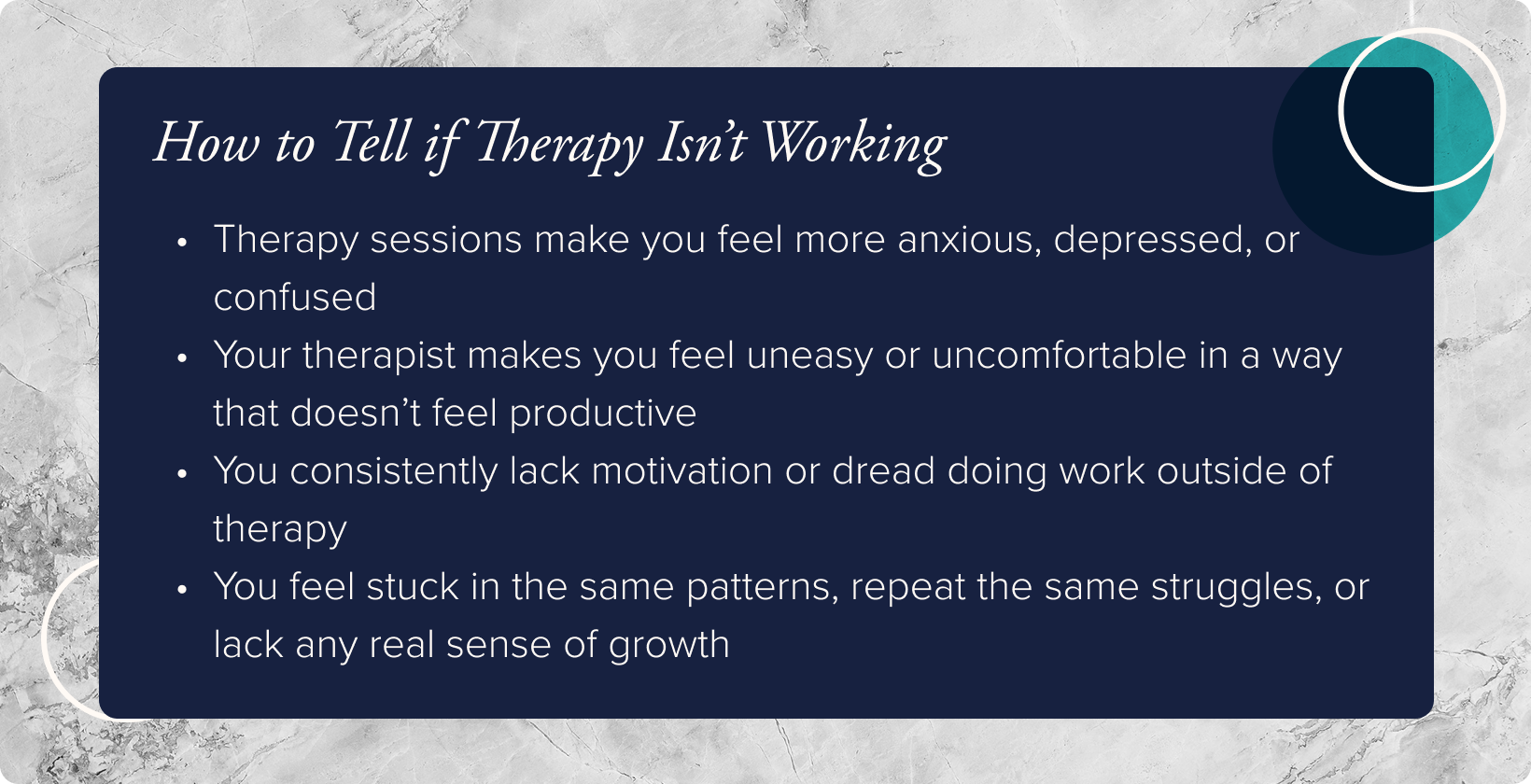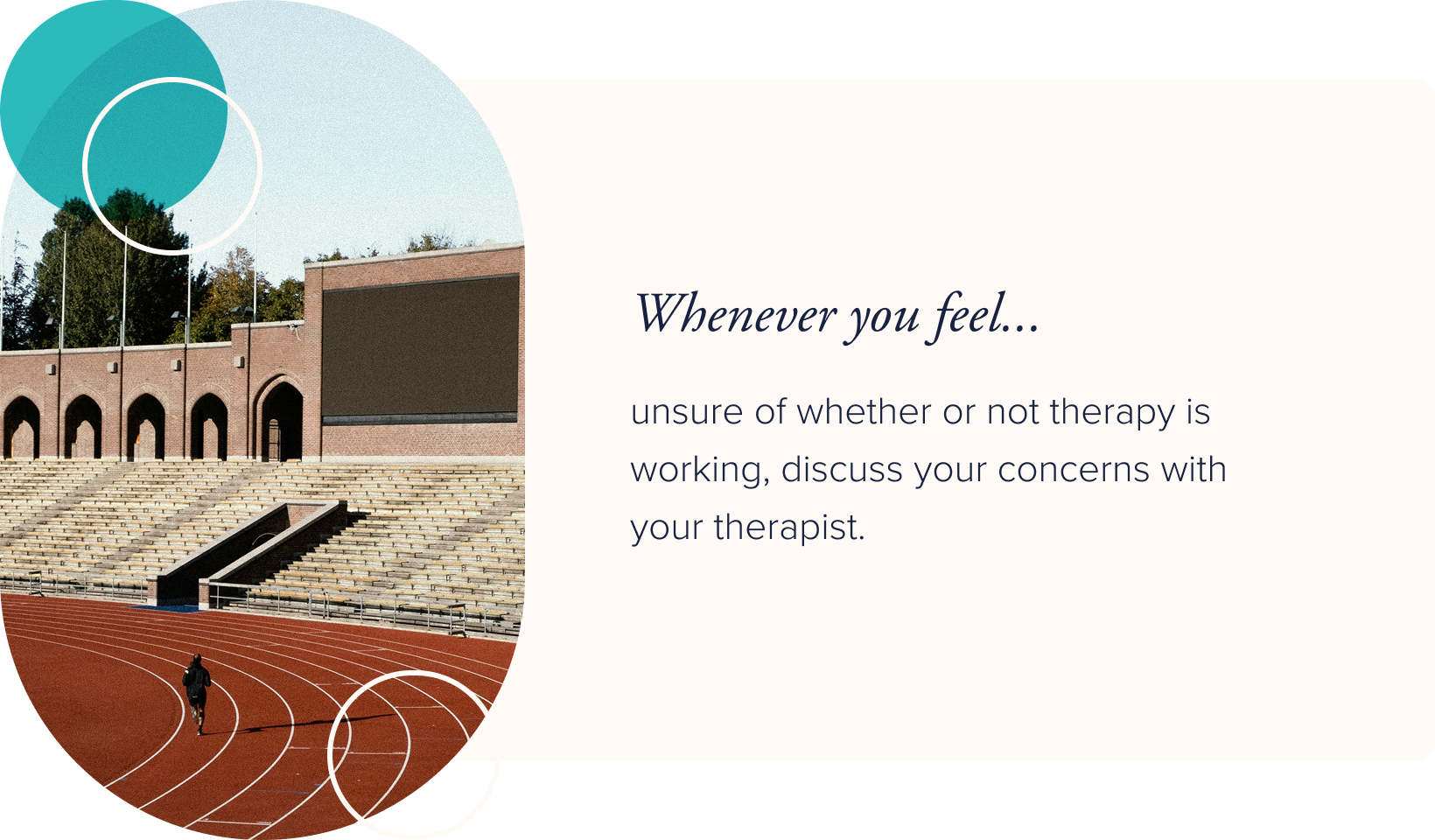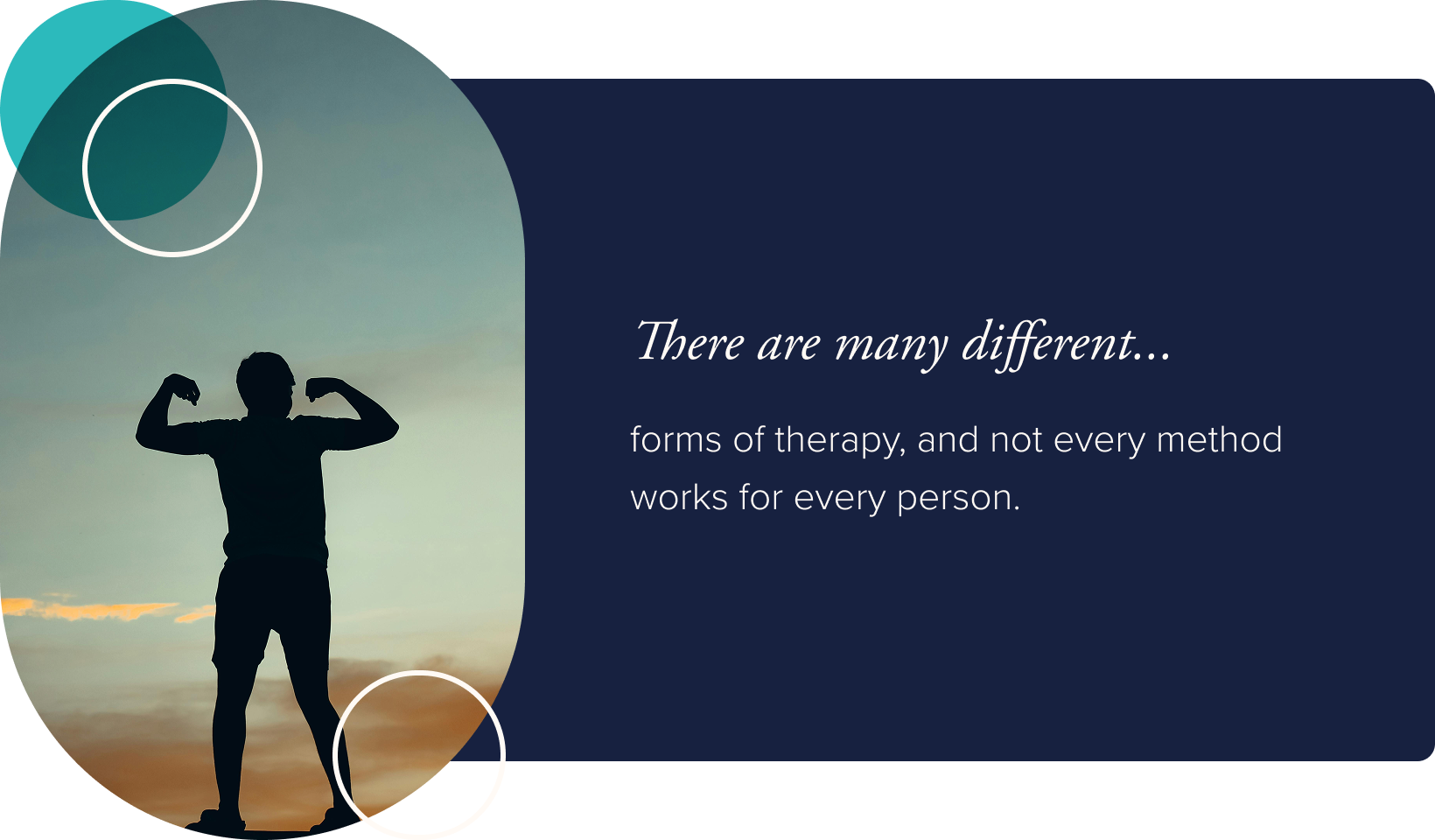
How to Know if Therapy Isn’t Working

One-on-One Counseling in Arizona for Life's Challenges
Every day is a chance to start over. Our trauma-informed therapists will meet you where you are — in person or online — so you can process your experiences and become the person you want to be.
Therapy can be a life-changing experience where you gain insights into your mental health and learn how to navigate the challenges that life throws your way. But what happens when, despite your best efforts, you start to feel like therapy isn’t working?
In this guide, we’ll go over how to recognize when therapy isn’t working, why that might be the case, and what you can do about it.
How to Tell if Therapy Isn’t Working
Therapy can be full of ups and downs, breakthroughs and standstills, and moments where progress feels slow or uncertain. That’s because healing and personal growth aren’t linear, and creating meaningful change often requires a lot of time, patience, and persistence.
In therapy, you’re often unpacking years of experiences, habits, and emotions, so it’s normal for progress to come in waves. Feeling stuck from time to time, or even questioning whether therapy is working, is a normal part of the process.
That being said, while these ups and downs are to be expected, there are also some clear signs that therapy may not be helping as it should. Let’s take a look at some of the key indicators that therapy might not be working for you.

You Feel Bad After Each Session
Therapy is meant to challenge you, and sometimes this involves facing uncomfortable emotions, bringing up painful memories, or addressing harmful behaviors. However, if you’re consistently leaving therapy sessions feeling more anxious, depressed, or confused, then it’s a sign that the process isn’t working for you in a productive way.
You Don’t Feel Good With Your Therapist
It’s important to feel comfortable with your therapist and trust that they respect and understand your experiences. A good therapist may sometimes challenge you or gently push back to encourage growth, but they won’t dismiss your concerns, pressure you beyond your limits, or make you feel unheard.
If your therapist makes you feel uneasy or uncomfortable in a way that doesn’t feel productive, then it’s a red flag that’s worth listening to.
You Don’t Feel Like Doing the Work
Therapy isn’t just about the time spent during sessions. To get the most out of therapy, it often requires active effort outside of counseling sessions to reinforce what you’ve learned and to practice new skills. This can involve:
- Reflecting on your thoughts and feelings
- Journaling and practicing mindfulness
- Practicing coping strategies
- Completing homework assignments or exercises given by your therapist
- Setting and working toward personal goals
- Engaging in self-care activities that support your mental health
- Tracking your mood, triggers, or progress over time
If you consistently lack motivation or dread doing this type of work, it might indicate that the approach isn’t resonating with you or that you need additional support.
You Feel Stuck or Like Nothing Is Changing
Progress in therapy can be slow at times, and it’s completely normal to experience periods where change feels subtle or even invisible. However, if you’ve been in treatment for a while and still feel stuck in the same emotional patterns, repeating the same struggles, or lacking any real sense of insight or growth, it might be a sign that the current approach isn’t meeting your needs.
Read our related article to answer the question: How long does therapy last?
How to Reflect on Your Progress in Therapy
A helpful way to figure out whether you're simply in a temporary rough patch or if therapy truly isn't working is to take a step back and reflect on the progress you’ve made since you began. You can do this by:
- Revisiting the goals you set for yourself
- Comparing your current thoughts and behaviors to where they were when you started
- Noticing if you’ve developed any new coping strategies or tools
- Reflecting on whether you feel more self-aware or emotionally resilient
- Asking yourself if you’ve gained any insights or perspectives you didn’t have before
Whenever you feel unsure of whether or not therapy is working, it’s important to discuss your concerns with your therapist. They can guide you through these conversations and adjust their approach to better support you.

Why Therapy Doesn’t Always Work
Two common reasons therapy doesn’t always work are:
- The therapist may not be the right fit for you
- The therapy approach they’re using might not suit your needs
If you don’t feel safe, understood, or respected by your therapist, then it’s difficult to open up to them and make meaningful progress in therapy. Sometimes, your therapist can be kind and understanding, but it’s simply a matter of mismatched personalities or communication styles that make it difficult to achieve your goals in therapy.
The other key factor is the type of therapy being used. Many different forms of therapy can be used to treat specific mental health issues, and not every method works for every person.

Read our related article to learn why your therapist challenges you.
What to Do if You Feel Like Therapy Isn’t Working
Whenever you feel like therapy isn’t working, you should communicate it to your therapist. Without this communication, your therapist may not realize that therapy is the reason why you’re feeling stuck or disconnected.
By communicating your feelings with your therapist, they can:
- Adjust their therapeutic approach
- Re-focus the direction of your sessions
- Refer you to a psychiatrist for medications, if appropriate
- Explain and clarify their techniques
- Check in with how therapy is going more frequently
Your therapist can also help you explore whether or not a different therapist would be a better fit. Even if they aren’t doing anything wrong, sometimes the connection isn’t there, and that’s okay. If that’s the case, they can often offer referrals or help guide you toward someone whose approach or specialty may better align with your needs.
Inner Balance—Effective, Individualized Counseling Services
At Inner Balance, we strive to stop the cycle of people going in and out of treatment without any real change in their lives.
Our mental health professionals collaborate with each client to understand their needs and create a personalized, healthy path toward their goals. We approach all of our treatments with the belief that everyone deserves to feel like they are safe and that they belong.
Reach out today to connect with one of our mental health professionals and take the first step towards lasting change.
Related blog articles
Sign up for our newsletter
Sign up with your email address to receive news and updates.
Get started
Request a consultation

-03%201.png)




